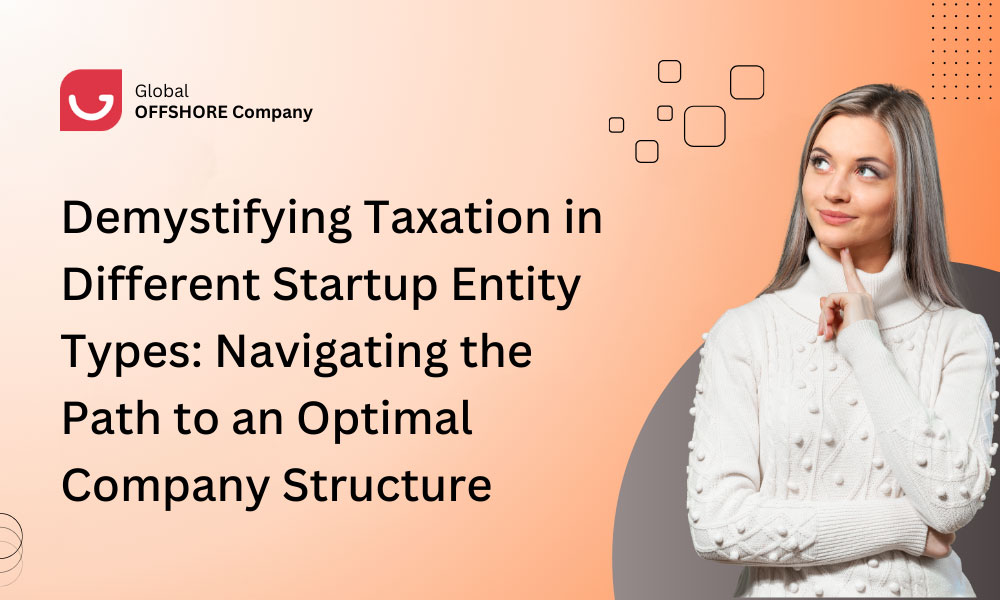Understanding Delaware Series LLC: Benefits, Tax Considerations, and Starting Process
Presented by G.O.C - Your Leading Offshore Service Provider
Introduction: Unveiling the Delaware Series LLC Concept
When it comes to establishing a Delaware LLC, the advantages are evident for businesses seeking improved asset protection and operational efficiency. However, as your business expands, the consequences of a single misstep can endanger the entire organization. In such scenarios, the implementation of a series LLC offers the ability to segregate assets and liabilities into distinct series within the same entity. This strategy not only provides tax and cost efficiencies but also eliminates the need for multiple LLCs to accommodate various ventures.
Definition of a Delaware Series LLC
As its name suggests, the Delaware Series LLC combines elements of both LLCs and series. A series LLC enables the creation of an unlimited number of "mini-LLCs" or series, each possessing its unique set of assets, objectives, members or member classes, and ownership interests.
A series structure consists of the main LLC (master LLC) and individual series branching off from it. Each series within the LLC maintains its independent identity and operates autonomously. The primary rationale behind these separate series is to erect barriers between the organization's various assets and safeguard members' identities, ensuring their protection in the event of a lawsuit against one series.
This framework extends to other aspects such as corporate governance and taxation, where individual series may possess distinct taxation statuses from one another.
Why Opt for a Delaware Series LLC?
Delaware stands as the optimal choice for establishing a series LLC due to its robust legal system, business-friendly courts, innovative legislative frameworks, and reliable liability insurance options. Consequently, numerous astute business professionals and real estate investors have gravitated towards Delaware.
Furthermore, Delaware boasts the Court of Chancery, a dedicated equity court that expedites dispute resolution through judges rather than juries. This grants Delaware one of the most extensive repositories of precedents concerning business-related judgments.
Pros and Cons of a Series LLC Structure
Pros:
1. Operational Simplicity: Only the master LLC within the series requires incorporation with Delaware's state government. The remaining series are formed using the operating agreement of the series LLC. Additionally, operating agreements need not be submitted to the Delaware Division of Corporations, ensuring anonymity and robust asset protection.
2. Cost-Effective Entry: Establishing a Delaware series LLC entails lower costs than forming multiple individual LLCs. A single filing fee suffices.
3. Franchise Tax Efficiency: The annual franchise tax for a series LLC is $300, regardless of the number of series it comprises. In contrast, individual LLCs necessitate a $300 franchise tax per entity.
4. Unified Tax Return: Only the parent LLC, encompassing all cell LLCs, is required to submit a tax return. However, this return can be complex, often requiring professional tax preparer assistance.
5. Single Registered Agent Fee: As a single organization, a series LLC incurs a sole registered agent fee annually. Contrastingly, creating multiple LLCs would incur separate agent fees.
6. Distinct Legal Separation: Each series retains its distinct characteristics, assets, and participants. Generally, debts, liabilities, and obligations of one series do not impact others, enabling unaffected operation even during legal disputes.
Cons:
1. Compulsory Accounting and Bank Accounts: Each series within the LLC must maintain separate financial statements, necessitating distinct bank accounts and accounting systems. This can pose administrative challenges for series housing multiple LLCs.
2. Separate EIN Requirement: For tax purposes, each series is treated as an independent legal entity, requiring its unique Employer Identification Number (EIN) and separate tax returns. This introduces complexity to business management.
3. Recognition Challenges: The series LLC structure is not universally recognized, leading to varying treatments in different jurisdictions. Some banks and financial institutions may lack familiarity with this structure, complicating account management and consultation.
4. Tax Complexity: The Internal Revenue Service's proposed rules for Series LLCs indicate that each series can have a distinct tax classification. This diversity in tax statuses within a series LLC complicates overall tax calculations and tracking.
Initiating a Delaware Series LLC: Steps and Requirements
Formation Prerequisites
To establish a Delaware series LLC, you must satisfy these criteria:
- Unique Asset Names: Each series must possess a distinct asset name.
- Separate EINs:Obtain separate Employer Identification Numbers (EINs) or tax ID numbers for each series.
- Registered Office and Agent: Maintain a registered office and appoint a registered agent for each series.
- Certificate of Formation: File a one-page Certificate of Formation, indicating the registered agent's name.

Formation Procedure
Forming a series LLC follows the same process as creating a standard LLC. Prepare a Certificate of Formation, submit it to the Delaware Division of Corporation, and pay the associated filing fee.
Within the Certificate of Formation, select the box signifying the formation of a series LLC or include statutory provisions outlining the creation of a series LLC with specified rights and limitations.
Define the organizational structure of your series LLC, its shareholders, managers, and tax structure, within the operating agreement.
Each series must secure its unique EIN from the Internal Revenue Service (IRS).
Filing Fees and Annual Tax
The Delaware Division of Corporations requires a $90 filing fee for the Certificate of Formation. This fee remains consistent regardless of the number of series created using the Operating Agreement.
Additionally, the series LLC only pays an annual tax of $300 to the Delaware Division of Corporations. This tax is due by June 1 each year and applies to the registered series as well.
Conclusion
Now you possess comprehensive knowledge about the Delaware Series LLC and its operational mechanisms. However, keep in mind that this business structure isn't universally accepted across all states. Given its novelty, uncertainties regarding the courts' perception of series LLCs in terms of liability matters remain.
If you require further guidance on implementing this structure or exploring alternative options for your specific case, don't hesitate to contact us at info@globaloffshorecompany.com. Our professional trained support team is ready to assist you with your Delaware company formation needs.
Disclaimer: While G.O.C endeavors to provide up-to-date and accurate information on this platform, the information serves solely as a reference. It is not a substitute for professional legal advice. For personalized advice, contact G.O.C's customer services.










